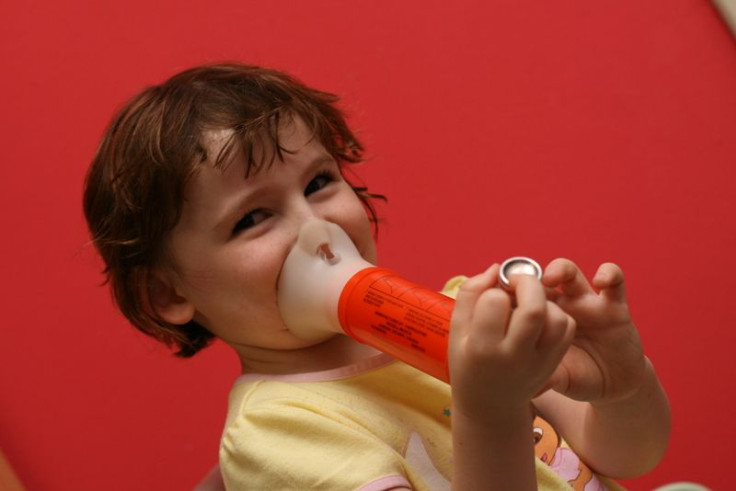Minority Children In Cities Are Failing At School In Part Because Of Asthma

Symptoms of asthma present a dilemma in children, especially when it comes to achieving high grades and gaining sleep, a new study shows.
"In our sample of urban schoolchildren, aged seven to nine, we found that compromised lung function corresponded with both poor sleep efficiency and impaired academic performance," said study author Daphne Koinis-Mitchell, an associate professor of psychiatry and human behavior at Brown University's Alpert Medical School in Providence, R.I.
The findings were presented at the annual American Thoracic Society International Conference last week in Philadelphia and found that the more asthma symptoms in a child, the lower his or her quality of schoolwork.
The researchers recruited 170 pairs of African-American, Latino, and non-Latino white children and their fathers who were living in Providence, R.I. They subsequently monitored and measured the children's asthma and sleep symptoms in three 30-day intervals. Teachers and parents were also involved to keep track of the children's performances in school by being asked about sleeping patterns and grades.
After measuring the severity of asthma symptoms with a tool that measures breathing called spirometry and keeping track of asthma control in family diaries, researchers said that those who poorly managed the symptoms of asthma had lower grades than children who had their asthma under control.
When it came to sleep, children experiencing bad asthma symptoms couldn't get enough sleep and their academics consequently suffered.
The frequent struggles with asthma were higher in urban children from low socioeconomic backgrounds primarily because they reside closer to risky environmental pollutants that may contribute to asthma and poor health. Children from these families are also at risk if they don't visit parks for cleaner air.
The Natural Resources Defense Council found that pollutants such as smog, sulfur dioxide from burning coal, and diesel exhaust could trigger asthma.
"Given the high level of asthma burden in these groups, and the effects that urban poverty can have on the home environments and the neighborhoods of urban families, it is important to identify modifiable targets for intervention," Koinis-Mitchell said in a news release from the thoracic society.
Asthma currently impedes the lives of nearly 7.1 million children below the age of 18, out of which 4.1 million experienced asthma attacks in 2011, according to the American Lung Association.
The researchers hope that controlling asthma symptoms and gaining better sleep through interventions could significantly improve children's school performances in these populations.
Published by Medicaldaily.com



























